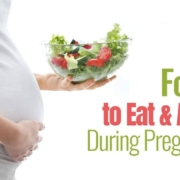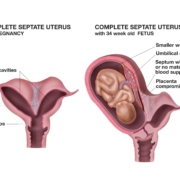Prepare for Breastfeeding Before Baby Arrives: Essential Tips and Strategies
Welcoming a new baby into your life is an exciting time filled with anticipation and preparations. Among the most important preparations is getting ready to breastfeed. To ensure a smooth breastfeeding journey, it’s crucial to prepare well before your baby arrives. This guide will walk you through the steps to prepare for breastfeeding before baby arrives, ensuring you feel confident and ready when the time comes.
Understand the Benefits of Breastfeeding
Before diving into the preparations, it’s important to understand why breastfeeding is highly recommended for most mothers and infants. Breastfeeding offers a myriad of health benefits for both the baby and the mother. It provides the perfect mix of vitamins, protein, and fat that your baby needs for growth. Breast milk contains antibodies that help your baby fight off viruses and bacteria. Additionally, breastfeeding can forge a stronger emotional bond between mother and baby.Educate Yourself About Breastfeeding
Attend Breastfeeding Classes
Consider enrolling in breastfeeding classes offered by local hospitals or community centers. These classes provide valuable information on various techniques, what to expect in the first few weeks, and how to handle common challenges. They also offer a great opportunity to meet other expectant mothers.Read Books and Reliable Online Resources
Arm yourself with knowledge by reading books about breastfeeding and visiting reputable websites. Resources like La Leche League and the American Academy of Pediatrics offer up-to-date, research-backed information.Set Up a Comfortable Feeding Area
Create a designated feeding area in your home where you can feed your baby peacefully. This spot should have a comfortable chair with good back support, a footrest, and a small table for items like water, snacks, and breastfeeding accessories. Consider a nearby spot for placing a basket with essentials such as breast pads, burp cloths, and a breast pump.Purchase Necessary Breastfeeding Supplies
Breast Pump and Accessories
Whether you plan to return to work or simply need to have a supply of milk handy, a breast pump is essential. Research different types of pumps to find one that suits your needs.Nursing Bras and Clothing
Invest in comfortable nursing bras and clothes that provide easy breast access. This makes it easier to breastfeed discreetly and comfortably, whether you’re at home or out and about.Consult with a Lactation Consultant
Meeting with a lactation consultant can be a game-changer. They can offer personalized advice and demonstrate proper latch and positioning techniques. Many consultants will even make home visits after your baby is born to help troubleshoot any issues.Practice Healthy Living
Nutrition
Eating a balanced diet rich in fruits, vegetables, proteins, and whole grains can help ensure a healthy milk supply. Also, stay hydrated by drinking plenty of fluids.Physical Health
Continue with moderate exercise as advised by your healthcare provider. Staying active can boost your mood and overall health.Prepare Mentally
Breastfeeding can be a challenging experience for many new mothers, both physically and emotionally. Prepare yourself mentally by setting realistic expectations and preparing to be patient with yourself and your baby as you both learn this new skill.Conclusion: Ready for a Rewarding Journey
Preparing for breastfeeding before your baby arrives is a proactive approach that can set the stage for a fulfilling and successful breastfeeding experience. It’s about making informed choices, setting up a supportive environment, and caring for your own health. With these preparations in place, you can look forward to a rewarding breastfeeding journey filled with precious bonding moments with your baby. Remember, every mother’s breastfeeding journey is unique. Be flexible and patient, and don’t hesitate to seek support when you need it. Happy breastfeeding!Reference:
- La Leche League International – This organization offers a wealth of information on breastfeeding, including how to prepare before your baby arrives. They also provide support through local groups.
- American Academy of Pediatrics Breastfeeding Initiatives – The AAP’s section on breastfeeding is a great resource for understanding the health benefits and getting practical tips for breastfeeding success.
- KellyMom – Founded by a lactation consultant, this website is a trusted resource for evidence-based information on breastfeeding and parenting.
- Breastfeeding USA – Breastfeeding USA provides evidence-based information and support, and helps mothers find a breastfeeding counselor.





 ToronTek
ToronTek 

 ToronTek
ToronTek 
 ToronTek
ToronTek
Leave a Reply
Want to join the discussion?Feel free to contribute!